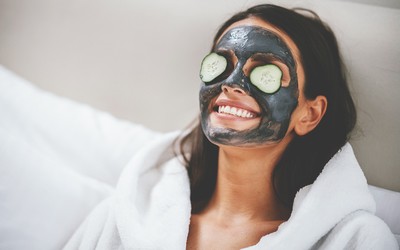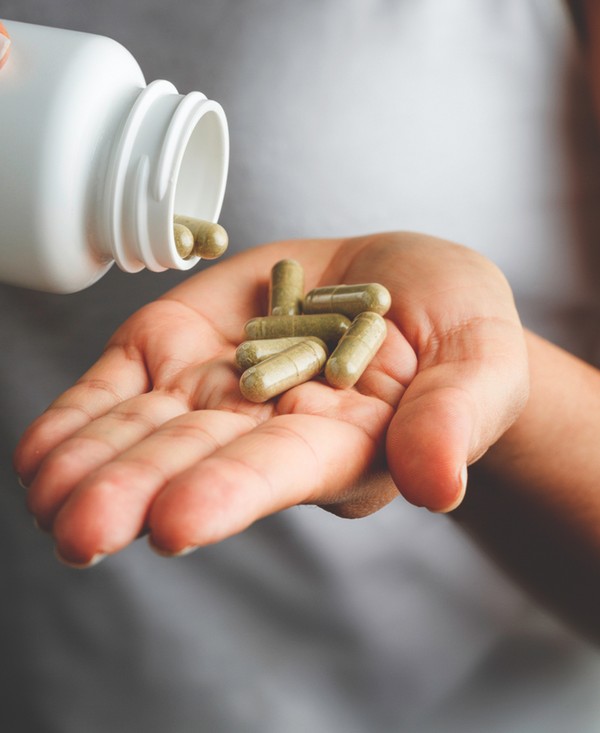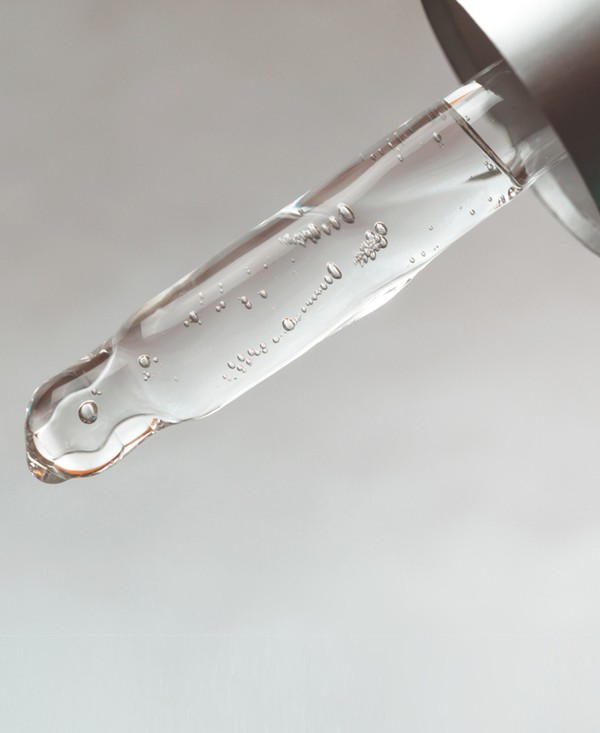
How Brides Should Look After Their Skin During Lockdown
DON’T Panic
“Firstly, don’t panic and automatically reach for the strongest formulations,” says Lisa Kordecki, head therapist at Skincity. “If you’ve been undergoing medical-grade facials or professional peels, you may think your skin can handle anything, but proceed with caution. We offer online consultations, helping customers build a bespoke skincare routine. Take full advantage of those looking to make your beauty regime as interactive and personal as possible.”
DON’T Try Anything New
“My most important piece of skin advice in the run-up to a wedding or any big event is not to try anything new,” says Debbie Thomas, skin expert and founder of the D Thomas Clinic. “Stick to what you know, tried and tested all the way – not just with products and treatments but also with your diet. Anything new could cause a reaction or a purging – meaning breakouts or rashes.”
DO Think About Taking Supplements
According to Lisa, our skin craves stability. "Many people are experiencing the effects of ‘isolation skin’ – stress-related pimples, dark circles from interrupted sleep, and the fetching glow from that extra glass (or two) of wine. The skin’s microbiome is compromised by the body’s stress response, so on top of eating a balanced diet and getting some exercise, a collagen-boosting skin supplement can help.”
Dr Tiina Meder is a dermatologist, cardiologist and founder of Meder Beauty Science. She says: “If you are spending more time inside, taking a vitamin D supplement can help create healthy skin cells, playing an important role in skin tone. Vitamin C contributes to collagen formation, which supports skin health; and vitamin E helps protect cells from oxidative stress that leads to premature ageing and wrinkles.”

DO Consider Peptides
“If your professional treatments have extended to injectables and you can’t get to the clinic for your top up, don’t fear,” Tiina explains: “We have made our Meder Beauty Science Myo-Fix Pro products available for home-use during this period. Originally developed to offer pregnant women and needle-phobic patients as an alternative wrinkle treatment, they prolong and maintain the result of Botox injections. The formula includes three strong myo-relaxing peptides that immobilise the skin. Together they ensure mobility is retained while the skin creases less and fine lines are improved.”
DON’T Over-Exfoliate
“We’re seeing more customers showing signs of over-exfoliation, and it’s easily done,” cautions Lisa. “Alpha hydroxy acids (AHAs), beta hydroxy acids (BHAs) and polyhydroxy acids (PHAs) can be found in everything from cleansers and scrubs to serums and leave-on toners. Beyond well-known glycolic and salicylic acids, there’s malic acid, mandalic acid, tartaric acid and lactic acid. Throw in some physical exfoliation on top (via scrubs or even your hot cloth) and your skin will become inflamed and sore. Exfoliation is great, but remember good skincare is a marathon not a sprint.”
DO Keep Your Regime Targeted
Dr Charlene DeHaven is clinical director at iS Clinical. Her suggestion? “Strip out any superfluous products so your at-home regime is as targeted as possible. Avoid any scented products (which can often trigger irritation) and check the expiry date of old products that you might be inclined to reach for.”
DON’T Forget About Pigmentation
“Treat pigmentation with a good-quality vitamin C serum,” recommends Charlene. “Look for the most stable form of the ingredient – L-ascorbic acid – which will inhibit the skin’s melanin production, slow down the cellular process that causes skin discoloration, and stimulate collagen synthesis. Arbutin is another ingredient to look out for, as it inhibits tyrosinase enzymes that produce melanin.”
DO Be Gentle With Sensitive Skin
“Sensitive skin and skin with rosacea share a lot of similarities. In both cases, the number of pain, itch and heat receptors in the skin are increased, as the skin’s autoimmune response reacts to the slightest stimuli with an explosion of inflammation. Gently does it: a hydrating serum containing optimum levels of hyaluronic acid will cool and calm flare-ups,” says Charlene.
DON’T Overdo Exercise
“I have seen many people who have broken out on the face and/or chest and back when they intensify their workouts in the run-up to their wedding,” warns Debbie. “This is the body purging. Try not to overdo it just before the wedding.”
DO Test Products Several Months In Advance
“If you still have several months before your wedding, you can try a few new products,” says Debbie, “but you should slowly add them in. For example, if you want to try a new serum, add it in and use it for two to three weeks before adding in another new product.”
DO Try LED
“Most brides want to achieve a ‘no make-up’ look. This means waving goodbye to breakouts, uneven skin tone and pigmentation,” confirms A-list aesthetician Shani Darden. “Thankfully, there are some professional-grade treatments you can safely try at home during lockdown, including LED phototherapy masks. If you want to maintain a glow-getting regime, Déesse Pro has all the light wavelengths you might need: red LED to boost collagen; blue to kill acne-causing bacteria; and green to treat hyperpigmentation, redness and rosacea.”

DO Take Care With Retinol
“Take care if you’re embarking on a new retinol regime,” advises Charlene. “The risks of over-exfoliation can be high. Vitamin A and its derivatives (such as retinyl palmitate) stimulate collagen synthesis and speed up the metabolic function of older skin cells. This makes them powerful ingredients, but they need to be used judiciously. Look for formulations balanced with other hydrating, antioxidant or microcirculation-enhancing ingredients. For example, iS Clinical’s Youth Eye Complex contains vitamin A alongside centella asiatica, copper tripeptide-1 and Vitamin E. The blend stimulates collagen, improves capillary flow, and lessens dark circles and inflammation while reducing the risk of skin irritation.”
DO Use Acids
“Acids can be really helpful to get a glow and reduce blockages,” confirms Debbie. “There are lots of different types of acids, strengths and product types, so do some research for a product that suits your skin. Two at-home peels I like because they are safe and easy to use are Medik8 Blemish Control Pads and NeoStrata’s Smooth Surface Daily Peel. The Medik8 pads contain salicylic acid and allatonin – perfect for reducing blocked pores, tackling mild acne and helping to balance oily skin. The NeoStrata peel contains glycolic acid and aminofil, which are great for smoothing the surface texture and brightening the overall complexion.”
Dr John Quinn is founder and medical director of Quinn Clinics and a fan of AHAs for anti-aging. “These naturally occurring acids are commonly used by cosmetic clinics for superficial skin peels. During the lockdown, I am recommending my patients try low-strength at-home AHA peels. I am also recommending retinol use at night. I would try one or the other first, as together they can produce skin irritation. In fact, I always recommend a ‘start low and go slow’ approach.”
Finally, Charlene adds: “If you’ve been having peels or laser treatment to tackle acne or scarring, you can maintain results by having a good AHA in your skincare arsenal. Willow bark extract is a potent botanical source of salicylic acid that exfoliates the skin and helps keep pores clear.”
Experts
-
Lisa Kordecki, head therapist, Skincity
-
Dr Charlene DeHaven, clinical director, iS Clinical
-
Shani Darden, aesthetician
-
Dr John Quinn, founder and medical director, Quinn Clinics
-
Dr Tiina Meder, dermatologist, cardiologist, founder of Meder Beauty Science
-
Debbie Thomas, advanced skin & laser expert, founder of D Thomas Clinic
DISCLAIMER: We endeavour to always credit the correct original source of every image we use. If you think a credit may be incorrect, please contact us at info@sheerluxe.com.

